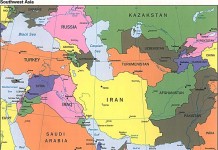 Naad-e-Ali Sulehria – South Asia Fellow, PoliTact
Naad-e-Ali Sulehria – South Asia Fellow, PoliTact
On January 16, in an unexpected twist Iran launched airstrikes into Pakistan’s Balochistan province, claiming to have targeted two strongholds of the anti-Iran militant group Jaesh al-Adl (Army of Justice). In less than two days, Pakistan responded with a tit-for-tat strike, hitting hideouts of ethno-nationalist Baloch separatists within Iranian territory. This abrupt eruption of cross-border military hostilities severely strained the otherwise amicable relations between the neighboring countries, with Pakistan condemning Iran for violating its territorial sovereignty and subsequently severing diplomatic ties as well.
In the aftermath of Pakistan’s counterstrikes, Iran found itself exposed, raising concerns that the situation could be exploited by Iran’s adversaries. To counter, Iran conducted air defense drills using drones designed for intercepting hostile targets along its southwestern to southeastern coasts.
Tensions between Pakistan and Iran sparked fears of a regional conflict. However, both nations eventually de-escalated the situation by stressing that issues should be resolved through dialogue, and agreed to enhance counter-terrorism cooperation utilizing existing communication channels.
Although a brief escalation, the recent episode has underscored the fundamental challenges both countries face in conducting counter-terrorism – with mutual distrust and security concerns persisting over time. Pakistan and Iranian governments have struggled to fully secure this volatile region, as people on both sides of the 559 miles long border feel deprived of basic necessities, face discrimination, and demand a larger share of their resources.
Both nations have long accused each other of providing safe havens to their respective enemies. Pakistan consistently alleges that India’s intelligence agency, Research and Analysis Wing (RAW), operating from Iranian soil, orchestrates attacks in Pakistan’s Balochistan region and supports the anti-Pakistan Baloch separatist movement. Conversely, Iran blames Pakistan for inaction against anti-Iran elements with sanctuaries on its side of the border – and not controlling infiltration that results from human trafficking and smuggling of weapons.
Pakistan is also wary of Iran’s increasing involvement in fomenting sectarian violence within the country. Recently, Pakistani security forces apprehended a top commander of an Iranian-backed militant group, Zanabiyoun, in Karachi, accusing him of carrying out targeted killings of prominent Sunni clerics on behalf of Iranian intelligence.
Sanctions imposed on Iran due to its nuclear program and support for non-state actors, especially in the Middle East, have also complicated its relations with Pakistan. Projects such as Iran-Pakistan Gas Pipeline could not move forward due to these sanctions. Despite its fluctuating ties with the US and strategic ties with China, Pakistan is still considered a close American ally. On the other hand, Iran has had long term relations with both China and Russia.
Meanwhile, Pakistan faces a fresh wave of Baloch protests, calling for government action on enforced disappearances and extrajudicial killings. These ongoing protests have triggered a stern response from the Pakistani interim government, with caretaker Prime Minister Anwarul Haq Kakar dismissing the Baloch protests as supporters and relatives of those opposing the state.
Pakistan anticipates a high-level visit from the Iranian Foreign Minister in the near future. However, despite their commitment to collaborate against a common enemy, the root causes of Iran-Pakistan tensions persist and are exploited by outside powers.
Naad-e-Ali Sulehria – South Asia Fellow, PoliTact



